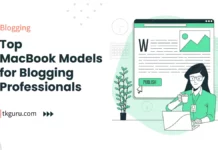Advertisements
Ratings

Blogging Myths 2023 – In the world of blogging, misconceptions often run rampant, shaping expectations and decisions for aspiring bloggers.
It’s time to set the record straight by debunking some of the most prevalent blogging myths.
This comprehensive guide aims to clarify the realities of blogging and empower newcomers with accurate information.
Contents
- Myth 1: Blogging is Easy and Quick Money
- Myth 2: You Need to Be a Master Writer
- Myth 3: Traffic Will Automatically Come
- Myth 4: Blogging is Saturated; There’s No Room for New Blogs
- Myth 5: You Need to Post Daily for Success
- Myth 6: Monetization Happens Quickly
- Myth 7: Design Doesn’t Matter Much
- Myth 8: Blogging is Isolated; You Don’t Need a Community
- Myth 9: You Need to Know Everything About Your Niche
- Myth 10: Blogging is Just About Writing
- Conclusion
- Blogging Myths FAQs
Myth 1: Blogging is Easy and Quick Money
Misconception: Many people believe that starting a blog is a shortcut to quick riches.
| Myth | Reality |
|---|---|
| Blogging is easy and quick money. | Building a successful blog requires consistent effort, dedication, and strategic planning. |
| A few blog posts will generate instant wealth. | Successful bloggers often invest years in creating valuable content and building an audience. |
Case Study: The Journey to Success
As an example, let’s look at the case of “HealthyLivingDiaries,” a health and wellness blog. In their early days, they faced the reality that blogging demanded a significant commitment.
While they started with a passion for health topics, they quickly learned that consistent research, quality content creation, and audience engagement were essential.
Over time, their dedication paid off, and they monetized their blog through affiliate marketing and sponsored posts.
Myth 2: You Need to Be a Master Writer
Misconception: Only those with exceptional writing skills can succeed in blogging.
| Myth | Reality |
|---|---|
| Being a master writer is essential for blogging. | While writing is important, authenticity, value, and engagement matter more than impeccable writing skills. |
| Poor writing skills mean failure in blogging. | Many successful bloggers started with average writing skills and improved over time through practice and experience. |
Tips for Finding Your Unique Voice
To debunk this myth, consider the case of “TheAdventureTrail,” an outdoor adventure blog. The founder, Sarah, wasn’t a professional writer but was passionate about sharing her hiking experiences.
Her authentic voice and enthusiasm for the outdoors resonated with readers, leading to a dedicated following. Over time, her writing skills improved, but it was her passion that truly set her blog apart.
Myth 3: Traffic Will Automatically Come
Misconception: Publishing great content alone will automatically bring traffic to your blog.
| Myth | Reality |
|---|---|
| High-quality content guarantees traffic. | Effective SEO, promotion, and networking are essential to attract and retain an audience. |
| Traffic will magically appear without effort. | Strategic efforts like keyword optimization and social media engagement are crucial for traffic. |
Strategies for Driving Traffic
Consider “TechInnovationsToday,” a tech blog that started from scratch. Initially, they faced the reality that producing great content was just the first step.
They actively engaged in SEO practices, optimizing their articles for relevant keywords. Additionally, they utilized social media platforms to promote their content and connect with their target audience. These efforts led to a steady increase in traffic over time.
Myth 4: Blogging is Saturated; There’s No Room for New Blogs
Misconception: The blogging landscape is oversaturated, leaving no space for new bloggers.
| Myth | Reality |
|---|---|
| The blogging field is overcrowded. | Niche-specific blogs with unique angles and valuable content can find their place and audience. |
| New bloggers won’t stand out. | Successful newcomers identify gaps in existing content and offer fresh perspectives. |
Finding a Unique Angle
Consider “CulinaryExplorations,” a food blog that defied the saturation myth. They focused on exploring lesser-known cuisines and culinary traditions.
By providing authentic and in-depth insights into these niche areas, they managed to carve out a dedicated readership interested in global gastronomy.
Myth 5: You Need to Post Daily for Success
Misconception: Daily posting is the only way to maintain a successful blog.
| Myth | Reality |
|---|---|
| Daily posting is essential. | Consistency is key, but quality and value matter more than frequency. |
| Infrequent posting means failure. | A consistent posting schedule aligned with audience preferences is more important than daily posts. |
Recommended Posting Frequency
To illustrate this, let’s look at “FashionFables,” a fashion blog. The founder, Alex, found a balance by posting twice a week with well-researched and visually appealing content.
While not posting daily, her content was well-curated, and she engaged with her audience consistently, leading to steady growth in readership.
Myth 6: Monetization Happens Quickly
Misconception: Many believe that monetization occurs soon after starting a blog.
| Myth | Reality |
|---|---|
| Monetization comes quickly. | Monetization requires a solid foundation, traffic, and audience trust, which take time. |
| Starting a blog means instant income. | Successful monetization involves strategic planning, building a loyal audience, and patience. |
Strategies for Successful Monetization
Consider the case of “TravelTalesAdventures,” a travel blog. In their early days, they realized that immediate income wasn’t realistic.
Instead, they focused on creating valuable travel guides, sharing personal experiences, and building a loyal readership.
Over time, they implemented affiliate marketing, sponsored content, and their own products, turning their passion into a sustainable income source.
Myth 7: Design Doesn’t Matter Much
Misconception: The design of a blog has little impact on its success.
| Myth | Reality |
|---|---|
| Design doesn’t affect blog success. | User experience, visual appeal, and navigation significantly influence user engagement and retention. |
| Content matters more than design. | An aesthetically pleasing and user-friendly design enhances the overall quality of the blog. |
Creating an Engaging Design
Consider “HomeDecorHaven,” an interior design blog. The founder, Mia, understood the importance of design in conveying her content effectively.
She invested in a clean and organized layout, used high-quality images, and optimized the blog for mobile devices.
This attention to design contributed to a positive user experience, leading to longer visitor engagement and return visits.
Myth 8: Blogging is Isolated; You Don’t Need a Community
Misconception: Blogging is a solitary endeavor that doesn’t require a community.
| Myth | Reality |
|---|---|
| Blogging is an isolated activity. | Building connections, networking, and engaging with other bloggers enriches the blogging experience. |
| Community engagement doesn’t matter much. | Being part of a blogging community provides support, insights, and opportunities for growth. |
Engaging in the Blogging Community
Consider “CraftyCreations,” a DIY craft blog. The founder, Emily, initially believed that blogging was a solitary pursuit.
However, by engaging with other bloggers through comments, guest posts, and collaborations, she expanded her reach and learned from peers.
This sense of community helped her refine her craft, share experiences, and overcome challenges.
Myth 9: You Need to Know Everything About Your Niche
Misconception: Bloggers need to be experts in every aspect of their chosen niche.
| Myth | Reality |
|---|---|
| Bloggers must know everything about a niche. | Continuous learning, growth, and sharing your journey of discovery can resonate with readers. |
| Limited knowledge means inadequacy. | Sharing your learning experiences and engaging with experts can add authenticity to your blog. |
Embracing Continuous Learning
Consider “TechExploration,” a tech review blog. The founder, Mark, initially felt pressure to be an expert in all tech topics.
However, he shifted his approach to exploring tech trends, learning along the way, and documenting his learning experiences.
This transparency and willingness to learn resonated with his audience, positioning his blog as an authentic source of insights and reviews.
Myth 10: Blogging is Just About Writing
Misconception: Blogging revolves solely around writing.
| Myth | Reality |
|---|---|
| Blogging is only about writing. | Diverse content formats like images, videos, infographics, and podcasts enhance engagement. |
| Written content is all that matters. | Multimedia content caters to different learning styles and boosts user interaction. |
Embracing Multimedia Content
Consider “FitnessFusion,” a fitness and wellness blog. The founder, Chris, realized that fitness isn’t just about words—it’s about visual demonstrations and workout routines.
By incorporating videos of exercises and cooking tutorials, he provided a more holistic and interactive experience for his readers. This approach led to increased engagement and a stronger connection with his audience.
Conclusion
Blogging myths often shape unrealistic expectations for newcomers. By debunking these myths and providing real-world examples, aspiring bloggers can approach their journey with a clearer perspective.
Remember, blogging requires dedication, authenticity, and ongoing learning. The journey may not always be easy, but the rewards of genuine engagement, a loyal audience, and personal growth are well worth the effort.
Blogging Myths FAQs
What are some common myths about blogging that beginners often believe?
Is it true that you need to be a great writer to succeed in blogging?
While good writing skills are valuable, you don't need to be a professional writer to succeed in blogging. Clear and engaging communication is essential, and you can always improve your writing over time.
Do I need to cover trending topics to attract a large audience?
Bloggers don't always have to focus on trending topics. Creating evergreen content that remains relevant over time can also attract a dedicated audience. Trending topics may bring short-term traffic, but evergreen content provides long-term value.
Can I monetize my blog immediately after starting it?
Monetizing a blog usually takes time. You need to build a solid readership, produce valuable content, and establish trust with your audience before effectively monetizing through methods like ads, affiliate marketing, or product sales.
Is blogging a solitary activity, or should I collaborate with others?
While blogging can be done individually, collaboration can be highly beneficial. Partnering with other bloggers, guest posting, or participating in collaborative projects can expand your reach, provide fresh perspectives, and foster a sense of community within your niche.
| Web Hosting | Website |
| WordPress | Google Adsense |
| SEO | Affiliate Marketing |
| Blogging | YouTube |
Recent Posts:
- Windows vs Mac: Choosing the Ideal Laptop for Your Needs
- 10 Best Budget Friendly Laptops for Bloggers with Impressive Performance
- Top MacBook Models for Blogging Professionals
- 10 Best Laptops for Content Creators in 2023
Related Tags:






